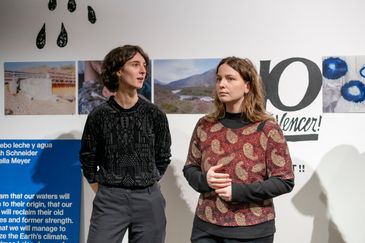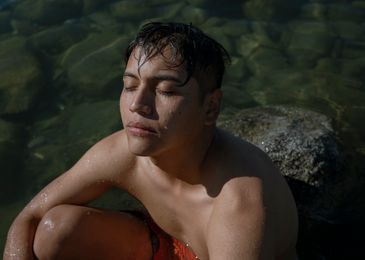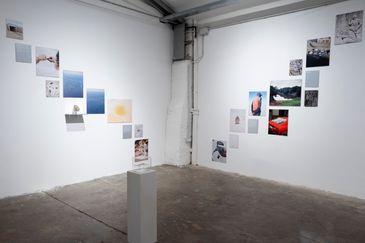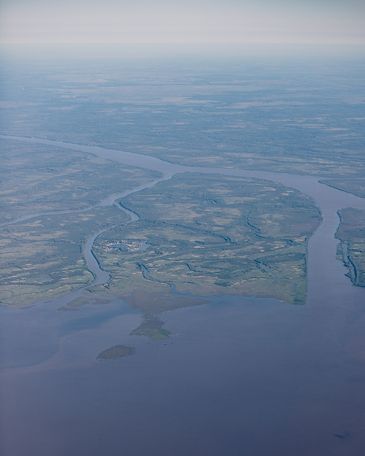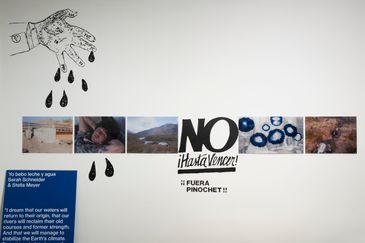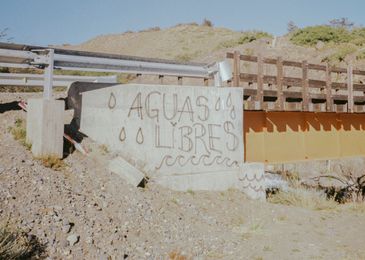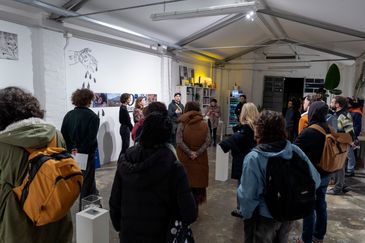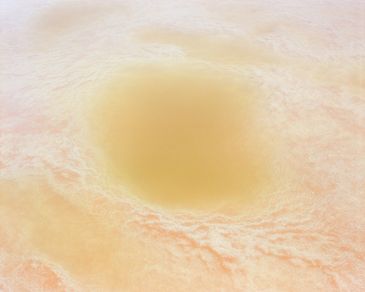
Exhibition / Open Veins by Maximiliano Tineo, Sarah Schneider & Stella Meyer
Exhibition / Open Veins by Maximiliano Tineo, Sarah Schneider & Stella Meyer
Where: PhMuseum Lab, Via Paolo Fabbri, 10/2a, 40138, Bologna
When: 05 December 2024 - 23 January 2025
Admission: Free
Vernissage: 05 December 2024, 6.00PM - 9.00PM
Opening Days: Every Thursday until 19 December, 5pm-7pm, afterwards by appointment
About the event
Maximiliano Tineo’s El Rey Blanco starts from the South American legend of the Sierra de la Plata, a silver mountain believed to be located in the lands of the so-called Rey Blanco. Following the traces of this imaginary place, Tineo encounters two real locations: the silver mine of Cerro Rico de Potosí, Bolivia, and the Lithium Triangle, located between Argentina, Chile, and Bolivia. Sarah Schneider and Stella Meyer's Yo bebo leche y agua is instead unfolding from a village, Puerto Guadal in Chile, and a law that marked its existence: the Código de Aguas, enacted in 1973 by Pinochet, decreeing water privatization in Chile.
Silver, lithium, and water are the raw materials at the center of these projects, which reflect on broader geopolitical and environmental dynamics, and on how they were influenced by colonial Eurocentric perspectives. During the colonial era, the southern hemisphere was in fact represented as terra nullius - a land belonging to no one, and from which infinite resources could be drawn. This philosophy, which is still impacting on our perception of nature, on debates over sustainable progress and over the distribution of wealth, has triggered cycles of violence and abuse, endlessly repeating themselves across different circumstances and places. At their center is a shared vision of Latin America, and of the Planet more broadly, as a pool of resources to be extracted, privatized, and exploited.
In The Open Veins of Latin America (1971), Uruguayan poet and writer Eduardo Galeano recounted the plundering of Latin American resources through five centuries of humiliation and poverty. The magical realism of Maximiliano Tineo's El Rey Blanco, and the contemporary documentary of Sarah Schneider and Stella Meyer's Yo bebo leche y agua seem to dialogue with this literary classic, showing us how these open veins - veins rich in minerals, in natural and human resources - are still an extremely actual theme linked to the economic, social, and cultural subordination upon which we are building the future.
Both works were developed as part of the third edition of Criticae, PhMuseum's Online Masterclass on Documentary Photography led by Max Pinckers and Laura El-Tantawy between October 2023 and May 2024.
Bio
Stella Meyer (b. 1997, Austria) and Sarah Schneider (b. 1996, Austria) currently reside in Hannover, Germany. Since 2020, they have been studying Visual Journalism and Documentary Photography at Hochschule Hannover. Together, they form a collective of documentary photographers who focus on socio-political issues, aiming to visualize the invisible. Their work has been published in newspapers such as the Frankfurter Allgemeine Zeitung and Der Spiegel Wissen, and they have been nominated for the True Picture and Student World Report Award. They were invited to the World Press Photo Exhibition in Oldenburg to talk about their work.
Maximiliano Tineo (b. 1988, Argentina) is an Argentinian visual artist based in Paris, France, and a member of the Paris Print Club. In recent years, he has used photography, text, and the independent publication of fanzines and photo-zines to explore themes of rootlessness, a sense of belonging, and the concept of home. His latest project on these themes, "hearth," has been selected as a finalist in several international competitions and festivals, and was the winner of the Boîte Book Award 2024. His work "El Rey Blanco" will be published by the French publishing house DUNES in July 2025.
Admission to the exhibition is free. For more information, write to us at info@phmuseumlab.com.
